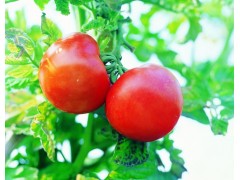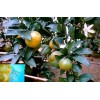Specification: 5%, 10%, 20%
Appearance: Red to reddish brown powder or tiny crystal
Test Method: HPLC
Molecular Formula: C40H56
Molecular Weight: 536.85
CAS No: 502-65-8
Solubility: Soluble in non-polar solvent,little soluble in Ethanol,insoluble in water.
Descript ion:
Lycopene is an antioxidant compound which gives tomatoes and certain other fruits and vegetables their color. Lycopene is one of the major carotenoids in the diet of North Americans and Europeans.
Some researchers believe lycopene may be valuable in preventing and slowing the growth of cancers of the prostate, lung, and stomach. These scientists describe lycopene as a powerful antioxidant, a compound that blocks the action of activated oxygen molecules - known as free radicals - that can damage cells. The antioxidant activity of lycopene is at least twice as great as beta carotene, another carotenoid that is also thought to be an effective cancer-preventing nutrient. Lycopene is considered one of the more effective antioxidants because it is not converted to vitamin A after it is eaten. Conversion to vitamin A weakens the antioxidant properties of carotenoids like beta carotene.
In addition, lycopene may also help prevent heart disease through this same antioxidant mechanism via an inhibition of oxidative damage to LDL cholesterol. Finally, lycopene is known to play a role, along with beta-carotene, in protecting the skin from the damAng effects of ultra-violet light radiation.
Function:
1.Lycopene is a strong antioxidant, which can help to combat degenerative diseases such as heart disease.
2.Lycopene helps prevent degenerative diseases by donating its electrons to oxygen free radicals thus quenching and neutralising them before they can damage cells.
















